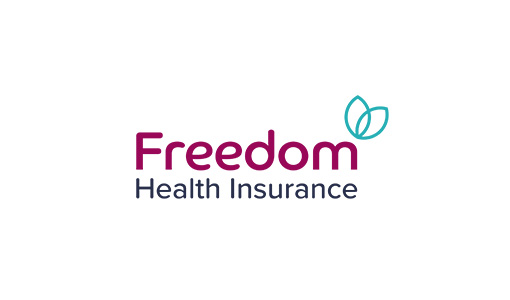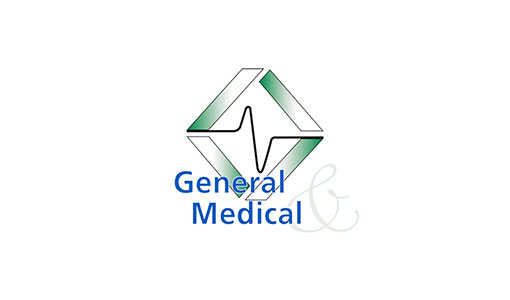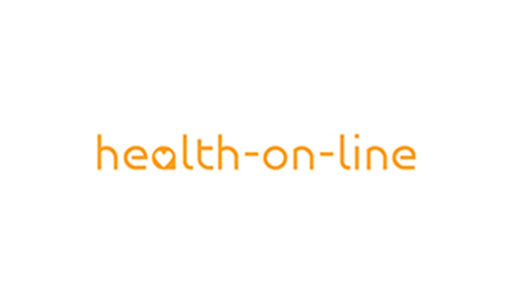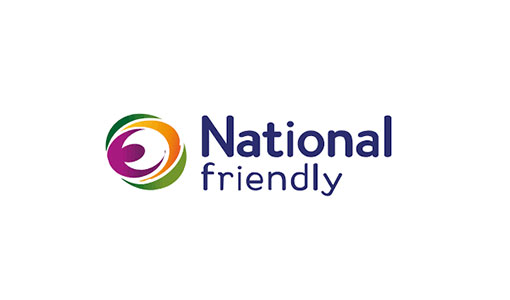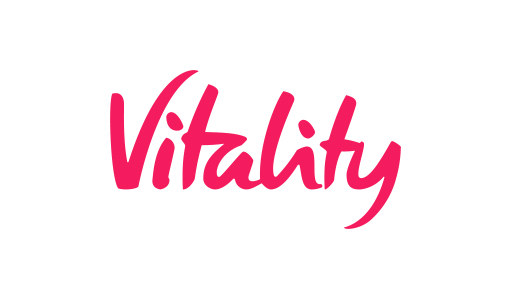Howden Life & Health
Health Insurance
Provides you and your family with speedy access to the best senior specialists at top medical facilities
Your rewards
For you - valuable FREE additional services whilst a client of Howden Life & Health
Find out more trending_flat- FREE will
- FREE prize draw
- FREE health support
Why choose Howden Life & Health for your Health Insurance
Health Insurance or Private Medical Insurance is designed to cover the costs of private medical treatment. Policy holders enjoy early consultations and fast treatment times without being subjected to long waiting lists. It may also mean treatment in a private hospital from some of the country’s top consultants and high patient/nurse ratios which can be crucial for a speedy recovery. These hospitals also insist upon high standards of comfort and catering as well as most having reduced risk of contracting superbugs such as MRSA.
Various levels of cover are available such as diagnostics or treatment, cancer care, complementary therapies, dental and optical care. Many insurance companies offer policy holders to pick elements of care which they would most benefit from or the option to have a fully comprehensive policy which includes everything. Some policies allow for anyone to be insured, even with pre-existing conditions; as long as there have been no symptoms in the past five years.
Discounts apply when excess levels are increased, no claims bonuses can be applied and restricting hospitals where treatment could take place, i.e. excluding the often more expensive London hospitals. For more ways to reduce premiums and for definitions, see our FAQ page, guide to Health Insurance and glossary.
If you already have a policy, our team will happily perform a review for you and assess if you have the most suitable or cheapest option available to you all for free.
For more detailed information or for an instant quote speak to one of our advisors by calling 0808 1681 262 .
The benefits of Health Insurance
- Avoid NHS waiting lists
- Private ensuite rooms
- High quality, nutritious food
- Access to top consultants
- High ratios of healthcare staff
- Your choice of leading private hospitals
- Comprehensive, Midrange and Budget options
- Plan options for families
Helpful Information
Compare Health Insurance quotes
The NHS is one of our greatest assets, but if your time is precious due to family or work commitments private health insurance can provide you with peace of mind.
You can compare health insurance quotes on our website, or if you would prefer help choosing the best policy for you, you can call one of our dedicated advisers on freephone 0808 141 1244."
The benefits of Health Insurance
By having private healthcare, you could be seen and treated faster. You could have treatments or drugs that the NHS are unable to fund. You could also be treated in a private hospital with your own room. Plus, you are free to choose your doctor and hospital, within the limits or your policy.
Don't just buy a policy for the perks - though they're worth a look
Many insurers offer perks and discounts alongside the policy, these range from discount gym memberships to free coffee.
But these benefits should not be the reason you choose a policy, make sure the coverage and price are right for you.
Find the right type of Health Insurance
There is a lot of different types of health insurance available to choose from, they include:
Individual health insurance - Allows you to bypass NHS waiting times and receive treatment quickly If you become ill or injured.
Family health insurance - Gives cover for any family members including your policy, making sure that treatment is received quickly should you require it.
Child health insurance - Provides cover for your children giving peace of mind that their health care is protected.
Joint health insurance - Offers health insurance for you and your partner, so you are assured treatment will be received promptly and at a choice of hospitals.
Compare quotes with us
If you are looking for health insurance quotes, we can compare one of the largest panels of insurers in the UK for you right here. To do so we need you to tell us a little about yourself, such as your address and whether you smoke, as well as the level of cover you require. We will then search the market for the best quotes available to you.
You will be able to compare the insurers on the level of cover and amount of excess you are willing to pay. It will also tell you if you get any extras included in your policy. Once you have found the policy you are happy with, just click through and complete your online purchase.
It is important you balance cost and coverage to make sure the chosen policy is the best fit for you whilst still at an affordable cost.
Our Health Insurance partners
Howden Life & Health can obtain quotes from a panel of leading medical insurance companies, to ensure that you are getting the best deal, these companies are:
- AXA
- Aviva
- Freedom
- Vitality
- Bupa
- General and Medical
- The Exeter
- Equipsme
- CS Healthcare
- WPA
- National Friendly and SAGA.
- We have friendly impartial advisers to help you choose the right policy for your needs and budget.
Private Health Insurance jargon buster
Understanding health insurance or just insurance, in general, can be daunting. That’s why we are here to simplify this for you:
- Certificate of insurance: the documentation you receive from your insurance company or broker which explains your policy and what is covered. You will be sent one at the start of the policy and each renewal, you may also require this to switch insurance.
- Day Patient: A day patient, is someone who normally walks in the hospital in the morning, receives their treatment or operation and walks out later that day.
- In Patient: You would be admitted into the hospital for more than a day and would need to spend at least one night in the hospital.
- Excess: An excess is an amount you agree to pay at the point of claim before the insurance starts to payout. A higher excess can also sometimes be used to reduce a monthly premium you could also opt to not have an excess at all.
- Exclusion: An exclusion is something an insurance company will not cover and can include a specific condition, treatment or your selection of hospitals.
- FCA (Financial Conduct Authority): The financial regulatory body in the UK, which regulates the financial markets to ensure that firms treat their customers fairly and act with integrity.
- FOS (Financial Ombudsmen Service): An independent service designed to settle unresolved disputes between businesses providing financial services and their customers.
- Full medical underwriting: This is based on your medical history, for this, you would be required to fill out a form to declare your medical history. The insurer would then assess these disclosures and make you aware of any exclusions.
- IPT (Insurance premium tax): The tax levied on general insurance premiums for those living in the UK.
- Moratorium underwriting: A simpler and quicker form of underwriting. The moratorium means that the insurer will not cover a pre-existing condition that you have had treatment, medication, advice or symptoms of over the past few years (how many years will depend on the insurer). However, once you start the policy if can show you have been 2 years symptom, medication, advise or treatment free it would then become covered under the policy.
- NCD (No-claims discount): A discount applied to a premium, typically applied when no claim has been made.
- Outpatient: A patient who visits a health care facility typically for a diagnostic test or consultation.
- Self-pay: Is when someone receives private medical treatment and decides to pay their medical bill directly without claiming on their insurance.
- Underwriting: The underwriting of a policy measures the risk of someone’s health which then stipulates the terms and conditions of a policy.
Health Insurance is there to cover non-routine tests and treatment
Each policy is different, but they do have some common conditions that will be included:
- Surgery as an inpatient or day patient
- Tests and scans
- Hospital accommodation and nursing care
- Consultations
- Therapy
- Diagnostics of chronic conditions
- Exclusive drugs
- Health insurance usually excludes?
Health insurance is designed to treat you for acute conditions that start after your policy has begun, it however it is not to cover every health condition. Many chronic and pre-existing conditions (e.g., arthritis or asthma) are excluded as standard. As well as the following:
- Dental services (unless added to your plan)
- Organ transplant, Prescription drugs and dressings, after leaving the hospital or as an outpatient
- Drug abuse and Kidney dialysis
- Experimental or unproven treatment or drugs
- HIV/AIDS
- Cosmetic treatment and Normal pregnancy
- Mobility aids, such as wheelchairs
- Deliberately self-inflicted injuries
- Infertility
The NHS may be sufficient for your needs
As we are very lucky that in the UK as we are one of only a handful of countries in the world that provides people with free medical treatment via a visit to a GP or A&E – so paying for private healthcare is a luxury.
Private medical insurance is a legitimate choice for those who need non-critical care and want to be seen more quickly and conveniently and in hospitals with more luxurious conditions.
Types of Private Medical Insurance
There is a lot of different types of health insurance available to choose from, they include:
Individual health insurance - Allows you to bypass NHS waiting times and receive treatment quickly If you become ill or injured.
Family health insurance - Gives cover for any family members including your policy, making sure that treatment is received quickly should you require it.
Child health insurance - Provides cover for your children giving peace of mind that their health care is protected.
Joint health insurance - Offers health insurance for you and your partner, so you are assured treatment will be received promptly and at a choice of hospitals.
What is Health Insurance?
Health insurance is designed to cover the cost of private medical treatment. It will normally cover you for ‘acute conditions’, such as a hip replacement or having a hernia removed. You can purchase different types of policies that offer different levels of cover, at different costs. This could include fast-track diagnostics for cancer or access to different cancer treatments not currently available on the NHS.
Why compare Health Insurance with Howden Life & Health?
Searching for the right health insurer can be stressful and here at Howden Life & Health, we want to help you make the complicated simple. Therefore, we have a selection of policies online that you can purchase by providing very basic information. We also have a dedicated health insurance team of trained advisers, who are more than happy to walk you through the process and discuss your options with you. It is normally best for us to speak with the intended policyholder to make sure we obtain the most accurate information from you. We have won the Health Insurance Advisor of the year for the past 2 years, based on the advice that we provide to our customers. So, you know that you can trust our advice.
Howden Life & Health will give you:
- Free impartial advice.
- A comparison of the leading health insurers in the UK.
- The peace of mind that you are in good hands.
- Free annual review of your policy.
With a pick 'n' mix policy you only pay for what you need
A lot of providers sell cheap, basic plans to which you can add extras such as outpatient cover and extra cancer care to suit your needs and budget. Decide why you need private medical insurance – to cover every eventuality or more specific medical conditions.
Of course, the more extras you choose the more expensive it becomes. But you can also reduce costs by choosing a ‘six-week option’ which means if the waiting time under the NHS is six weeks or less, you can be treated as normal via the NHS. If the waiting time is longer, your private medical insurance will kick in.
You can choose whether to disclose your medical history upfront or not - but this affects how you claim
Health insurance has two types of underwriting that you choose from when starting your policy.
The first is Full Medical Underwriting, this is where you do disclose your full medical history from the star, the insurer would assess these disclosures and could place exclusions where necessary. The benefit of this is that you know what is and isn’t covered from the outset.
Frequently Asked Questions
Are there any age limits to private Health Insurance?
You will need to be 18 or over to take your policy, however, under 18's maybe able to be added to a parent’s policy, or the parent can take a child only policy with selected insurers. Most insurers have an upper age limit but this varies from insurer to insurer.
Are there any other restrictions to Private Health Insurance?
As with all types of insurance, there may be times when further restrictions apply this can range from:
Instead of being placed on a private ward, you may have to be placed on an NHS ward.
Having Private Health Insurance does not always mean you are taking the quickest route for treatment, the NHS can sometimes be as quick if not quicker.
Whilst you will have the opportunity to pick your hospital that you are treated in, this will be dependent on the hospital list you have chosen. The more hospitals available, the higher the cost of insurance.
You can take a policy if you have a disability, however, be aware that this may be classed as a pre-existing condition and therefore may not be covered under the policy.
Can I add other people to my Private Health Insurance policy?
If you would like to add either your partner, child/children or BOSh to your policy, you would need to check with your current provider, but most insurers do allow you to do this as a joint or family policy. But be aware that this is not always the best option when it comes to cost, so you should shop around or seek advice.
Can I choose my consultant?
Most of the time you can, but you must make sure your consultant fees are covered in full, by checking they are on the fee approved list (your insurer will help you with this).
If the consultant is not on the fee approved list and you still decide to use them, you may be liable to pay the shortfall in these costs.
Can I get Health Insurance if I am disabled?
Yes, however, the majority of insurers will not cover treatment related to your disability.
Can I use Private Medical Insurance and the NHS?
Regardless of whether you have health insurance or not you still have the right to use the NHS if required.
If you are happy to either wait for the NHS or there is no time saving, it is fine to use the NHS instead of your policy.
Do I have to renew my cover every year?
Whilst your policy does renew every 12 months, most policies have an automatic renewal process. It is, however, likely that your renewal will increase year on year, considering medical inflation and your age.
We will, therefore, review the market for you every year, to make sure your policy is still competitive and so that you know if there are any better options available.
Do I need a medical check before I get Health Insurance?
No, but if you opt to take a Fully Medical Underwritten policy you would be asked to declare your medical details before the insurer expects the policy. If you do opt for a Moratorium policy, then you would not need to do this.
Do you get a discount for paying upfront?
Sometimes you can benefit from paying annually a couple of examples of this are Saga will give you 7.5% discount, whilst AXA PPP will give you a 5% discount if you pay the entire premium in one payment. This, however, does not mean these are the right choices for you, so choose the policy that best suits your needs.
Does Health Insurance cover me abroad?
No, private health insurance policies are not normally designed to provide cover outside of the UK. You can on some policies add this cover, or you can take a stand-alone travel insurance policy.
How can I cut the cost of Private Medical Insurance?
There are many ways to reduce the cost of health insurance they include:
How do I pay for treatment?
The most common would be:
You would first obtain an open referral from your GP; you would then call your insurer to make a claim and to make sure it is covered. Once your claim has been agreed your insurer will help guide you through all options available to you, from which consultants you have available to which hospitals are covered under your plan. When you have arranged this and the treatment has taken place, most of the time, the consultant and hospital will bill the insurer direct, so you will not be out of pocket. You will, however, need to pay your excess upfront."
How does Private Health Insurance work?
If you have private health insurance it allows you to claim for the cost of private medical care, this is instead of you using health services like the NHS or self-funding. Every claim starts with an appointment with your GP if you suspect you have a health problem as you usually would, you should then let them know you have private health cover.
If required, they’ll refer you to a specialist. Dependant on your health insurance policy you may be able to choose private hospitals or specialists which might not be available on the NHS,
Once you have been given a referral letter, you’ll need to tell your insurance provider that you want to claim, and they’ll confirm whether the treatment you want or need is covered by your policy. If it is, they will approve your claim and you will be booked in to see a consultant and have any tests required to diagnose your condition. (This will be dependent on the level of cover you have selected on your policy)
How much does Health Insurance cost?
Medical insurance costs will depend on many factors, these can include: What level of cover you require, Postcode, Age, Medical History, Family Medical History, Lifestyle, There are a couple of costs to keep in mind – the cost of your policy monthly and your excess.
If you need to lower the cost of your health insurance plan, there are several ways to do this. Reduction in the outpatient cover, Higher excess (If affordable), the NHS waiting list is less than the private one, you can have treatment on the NHS instead, prove to insurers that you’re healthy, such as going to the gym and reduce the number of hospitals you can choose from.
How often you opt to pay the excess will affect the cost
Excess with health insurance is not very different from other types of insurance insurances, you usually pay an excess, i.e., an amount towards the claim. The larger the excess, the cheaper the premium. So, consider what you can afford and what is the insurance there to cover.
Once you've opted for an excess, some insurers will give you the option on its frequency, they can be:
This is where you pay an excess every time you make a new claim. For example, if you have a £250 excess and you make two separate claims in 12 months you would pay £500 is excess’s for that year.
If you have a £250 excess on the policy and needed to make two claims in 12 months, you will only pay the £250 excess on your first claim.
The insurer may also offer a 'shared responsibility' plan where customers can choose to pay up to 25% of any claim up to an agreed limit. If you choose the shared responsibility option, a discount can be applied.
This works when any claim you make you pay 25% of the cost of the claim. I.E for a £200 consultation you would pay £50 as an excess, you, however, select a limit that you will pay over the year. This means that if you claimed £50,000, then the maximum you would pay is the upper limit which you selected.
How to buy Private Health Insurance
Low cost doesn't necessarily mean best, but you can cut the cost of the premium once you've decided what cover you require.
Use our quotation comparison.
On our link to private health insurance you can obtain no-obligation quotes, this is a comparison quote that shows you the best prices across our panel of insurers, you will also be able to change your level of cover and your excess to make sure you get the best price.
Speak to your friendly advisers
If you're not sure which policy to get, or have conditions making it difficult to find the right one, contact one of our advisers. It does take a bit longer, but they will be able to give you a much more bespoke quotation and clearly explain the exclusions connected to your policy. They also have access to the panel of insurers to make sure you are getting the best price.
Is there a fee?
No by obtaining quotes either online or over the phone, you will not be charged. We offer a free impartial service.
How to find the best Private Health Insurance in the UK
Private health insurance’s best cover is known as comprehensive. It’s thought about as the best because it covers in full your tests, scans, consultations and In and Day patient treatment. However, this is not always the cheapest option.
Medical insurance policies normally let you pick what they cover, which hospitals you want access to and how much your excess is and base the price around this. After you’ve decided on what you want, you can compare health insurance policies on our website or by speaking to our advisers.
I have a Healthcare cash plan. Won't that do the same job?
Healthcare cashback plans are very different, but you can have BOSh private medical insurance and a cashback plan, so don't worry about choosing.
Healthcare cashback plans cover regular, everyday treatments including a visit to the dentist and optician, as well as therapies, physiotherapy and sometimes even massages.
You pay a monthly fee to an insurer and they are different because you need to pay for NHS or private treatment upfront, and you, therefore, claim some or all of the cashback depending on your policy, up to an annual maximum limit.
I'm already covered under a workplace scheme. Do I need to buy cover?
If your employer already provides you with health care insurance as part of your employment package it is unlikely you will need extra medical insurance. However, you should check what level of cover they are providing. If your employer does not provide cover your family then you may want to take a policy out for them.
Is an extended hospital list worth it?
Which hospital list is best for you will depend on what hospitals you want to have treatment in. If your chosen hospitals are covered on a reduced or standard list, then it may not be the extra premium to cover more hospitals.
This said, if you do require cover for a hospital that is only covered on an extended list then it maybe worth adding an extended hospital list whilst this will increase the premium, you will have the cover you require. Ultimately, this is your choice and based on what you need and can afford.
Self-insuring is an option, and you'll keep the cash if you don't claim
Instead of paying an insurance company and you feel you are fit and healthy you might want to save what you can each month into a top savings account instead of buying medical insurance. If you were to need treatment, you could just pay for it with your savings. Please bear in mind that treatment for some conditions, cancer, for example, can cost six-figure sums. It could be worth paying for private health insurance, so you can be assured of quick treatment and so you are not spending more money than you can afford on just one treatment.
Should I pay monthly or annually for private health insurance?
Some providers might give you a discount for paying annually and some might charge more for monthly premiums, however, there may be an offer like 1 month free which is only applicable if paying monthly. It’s up to you how you’d like to pay, but insurers will generally let you know which the cheaper option is.
Show your insurer you have a healthy lifestyle to cut costs
Some insurers will reduce your cost of cover if you can prove you can stay in good health with regular exercise and healthy eating. Non-smokers will also benefit from preferential prices.
Aviva's Healthier Solutions, allows you to save up to 15% if you answer some lifestyle questions when you renew and remain in shape, while Vitality Health offers perks and discounts off your renewal if you can show you're leading a healthy lifestyle. However, be aware that you might save more by switching provider.
What about a no-claims bonus?
No claims bonus is a way or rewarding customers that do not claim on the policy, for every year you do not claim a discount will be applied at renewal. The downside to this is if you must claim the no claims bonus will be reduced and possibly have an effect on your renewal premium. If you would like to avoid this you could look at insurers that are community rated, or simply have a no claims bonus system.
What are the benefits of Private Medical Insurance?
Private medical insurance generally gives you:
Quick access to consultants, tests and treatment.
Control over which hospital you go to, and when you are seen.
A lot of insurers give you, access to treatment and drugs that aren’t always available on the NHS.
Private hospitals which can make your stay more comfortable with amenities, such as a private room, your bathroom TVs and better visiting times.
If you’re self-employed or have a job where timing is an important factor, because you can often choose when and where you’re treated, access to private healthcare can be invaluable.
What are the top treatments claimed for?
The treatments that are commonly claimed for are:
What does Private Health Insurance cover?
Private health insurance will help you pay healthcare-related costs, what cover you get will be dependent on the cover you purchase.
Comprehensive
A comprehensive health insurance policy normally includes, full cover for outpatient cover as well as In or Day patient cover, you may also get some therapies or mental health cover included.
Mid-Range
A Mid-Range health insurance policy generally covers some outpatient care, like consultations and tests, as well as the In or Day patient cover. When reviewing this cover be wary of the level of outpatient cover being offered.
Basic
Basic health insurance policy will normally pay for treatment and any related costs while you’re an In or Day patient at the hospital. Be careful of the cheapest policies may limit the amount of cover you get for this.
Extras
You usually add extras to any level of cover to make the policy, this can include Dental, Optical, Therapies and Mental Health.
What is a chronic condition?
Chronic conditions are not covered by private medical insurance. These are generally defined as something that:
What is a pre-existing condition?
The dictionary definition of a pre-existing condition is a medical condition already suffered by a proposer before the starting date of an insurance policy. Some insurers may have slightly differing explanations, though the term normally applies to any conditions which present symptoms or which you’ve been treated for in the last five years. This usually includes any conditions you were diagnosed with over five years ago.
Some insurers may set the year limit higher or lower, so it always pays to read policy documents or check with your adviser before purchasing.
What kinds of things aren’t covered by Private Medical Insurance?
Private Health insurance is available to complement NHS care and is not designed to usually cover you for pre-existing conditions, or chronic conditions, unless confirmed when taking out the policy. You should always make sure you know what your policy covers and that you’re happy with any exclusions.
Private medical insurance is not designed for accident and emergency and if you require an ambulance for anything life-threatening, you should therefore still use these NHS services.
What optional extras can you get with Private Health Insurance?
Some extras you can choose, some of these may be included as standard while some may not be options at all. However, you’ll usually be able to choose to add: Homeopathy, Dentistry cover, Mental health support, Physiotherapy, Eyecare cover.
What other perks are on offer?
Across most insurers, they offer a lot of perks from gym discounts, free weekly cinema tickets to shopping discounts and discounts on health check-ups.
This should not be the main reason for purchasing the policy, but these discounts and offers can be great if you already use the services.
What policies are available and what’s covered?
Private health insurance will help you pay healthcare-related costs, though what cover you get will be dependent on the cover you purchase.
Basic
Basic health insurance policy will normally pay for treatment and any related costs while you’re an In or Day patient at the hospital. Be careful of the cheapest policies may limit the amount of cover you get for this.
Mid-Range
A Mid-Range health insurance policy generally covers some outpatient care, like consultations and tests, as well as the In or Day patient cover. When reviewing this cover be wary of the level of outpatient cover being offered.
Comprehensive
A comprehensive health insurance policy normally includes, full cover for outpatient cover as well as In or Day patient cover, you may also get some therapies or mental health cover included.
Extras
You usually add extras to any level of cover to make the policy, this can include Dental, Optical, Therapies and Mental Health.
If you want health insurance that covers someone other than yourself, you might want to find out about child health insurance, family health insurance or joint health insurance.
What should I consider when choosing Private Health Insurance?
Some important points to consider when comparing health insurance.
What level of cover you require - a comprehensive policy will cover you for most eventualities without a cost limit. Less expensive policies will set a cap on how much you can claim for, and these caps will vary according to the treatment involved
London Hospitals – might increase the cost of your premium. It’s worth considering how far you’re willing to travel to receive treatment, or whether the extra cost is worth it.
Some insurers have incentives - such as price reductions on gym memberships as well as discounts on other types of insurance with the same provider but also be aware that some offer introductory offers like 1 month free or partner goes free, this can give you a great new business price the but at renewal will increase.
Basic policies are available - take the time to read any exclusions and make sure that you’re comfortable with what’s included – you could find the list of covered out-patient treatment is very limited, or it might not be included at all. It may also come with limited cover where other policies cover it in full.
As you get older the cost will increase - so don’t be surprised if your premium rises after each birthday there is sadly a greater chance of you needing to make a claim. It also considers inflation and advances in medical technology.
What’s the process of getting Private Health Insurance?
If you're thinking of purchasing private medical insurance, you can check out your options on our website where you'll be asked questions about your lifestyle, your occupation, where you live, your age and whether or not you smoke. You'll then be shown a list of insurers and quotes to choose from. Once you've chosen your policy and made an application, we will submit this for you and supply you with all policy information that you require.
Alternatively, you could give one of our advisers a call and we can talk you through all your options as well as search a comprehensive list of the UK's top insurers who may not be on any comparison site.
What's the difference between Health Insurance and Critical Illness Cover?
They do not compare like products. Private health insurance is designed to pay for medical treatment that you need for diseases, illnesses, or injuries to get you back on your feet as quickly as possible. Critical illness pays out a tax-free lump sum to help offset any loss in income due to serious illness. You'd usually need to select this as an add-on and pay extra.
A critical illness could be:
Which hospitals or doctors can I use?
When purchasing the policy, you will normally be given the choice of different hospital lists, if you then came to make a claim you would only have access to the hospitals you had chosen.
Regarding consultants, this may be chosen by your GP, by you or the insurer, they would, however, need to be on the fee assured list for their full costs to be covered.
Will Health Insurance cover my existing conditions?
It will depend on what the medical condition is and when you last took medication or had a visit to a consultant. To make sure that you know if this is covered or not, we would recommend that you speak to one of our advisers. With this in mind a health insurance policy will still cover you for other illness and medical conditions you do not have before you take the policy out.
Will I have to do a medical to get Private Health Insurance
No, but if you opt to take a Fully Medical Underwritten policy you would be asked to declare your medical details before the insurer expects the policy. If you do opt for a Moratorium policy, then you would not need to do this.
Will my health affect the cost of my insurance?
Existing health conditions can influence the price that you pay, this is, however, dependant on the insurer. With some others, it will only affect the price if you want to cover these conditions.





